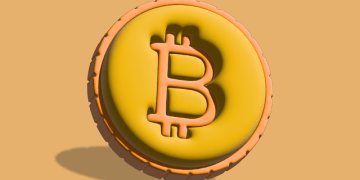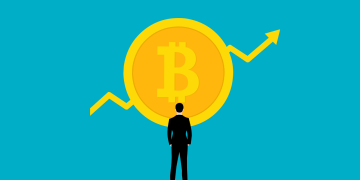The landscape of cryptocurrency payment solutions continues to evolve rapidly, offering businesses increasingly sophisticated and user-friendly options for accepting digital currencies. As we progress through 2024, crypto payment gateways are becoming more integrated, secure, and accessible, presenting businesses with compelling reasons to adopt digital currency payment solutions. This comprehensive overview explores the latest developments and innovations in crypto payment gateway technology.
The Evolution of Crypto Payment Solutions
Cryptocurrency payment gateways have transformed significantly from their early days of basic Bitcoin acceptance. Modern solutions now offer multi-currency support, instant conversions, and seamless integration with existing payment systems. This evolution has been driven by growing merchant demand and the need for more sophisticated payment processing capabilities in the digital currency space.
These advancements have made it possible for businesses of all sizes to participate in the cryptocurrency economy without requiring extensive technical knowledge. The focus has shifted from merely accepting cryptocurrencies to providing comprehensive payment solutions that address business needs for security, speed, and regulatory compliance.
Key Features of Modern Crypto Payment Gateways
Today’s crypto payment gateways offer an impressive array of features designed to meet the complex needs of modern businesses. Real-time currency conversion, automated accounting integration, and multi-wallet support have become standard offerings. These systems now provide enhanced security measures, including multi-signature authentication and advanced fraud prevention mechanisms.
Integration capabilities have also expanded significantly, with many gateways offering plugins for popular e-commerce platforms and point-of-sale systems. This seamless integration allows businesses to accept cryptocurrency payments alongside traditional payment methods without disrupting their existing operations or requiring significant technical modifications.
Security Innovations in Payment Processing
Security remains a paramount concern in cryptocurrency payments, and gateway providers have responded with innovative solutions. Advanced encryption protocols, cold storage options for merchant funds, and sophisticated fraud detection systems are now common features. These security measures help protect both merchants and customers while maintaining the efficiency of payment processing.
Multi-factor authentication and blockchain analysis tools have been integrated into many payment gateways, providing additional layers of security. These features help businesses comply with regulatory requirements while protecting against unauthorized transactions and potential security threats.
Regulatory Compliance and Integration
As regulatory frameworks for cryptocurrency payments continue to develop, payment gateways have adapted to ensure compliance with relevant regulations. Modern solutions include built-in compliance tools for KYC (Know Your Customer) and AML (Anti-Money Laundering) requirements, making it easier for businesses to maintain regulatory adherence while accepting crypto payments.
These compliance features are particularly important for businesses operating in multiple jurisdictions, as they help navigate varying regulatory requirements. Payment gateways now often include automated reporting tools and documentation systems to simplify the compliance process for merchants.
Cost Reduction and Efficiency Improvements
One of the most significant developments in crypto payment gateways has been the reduction in processing costs and improvement in transaction efficiency. Modern systems offer competitive fee structures that often undercut traditional payment processing costs, particularly for international transactions. The implementation of Layer 2 solutions and payment channels has further reduced transaction costs while improving processing speeds.
These efficiency improvements extend to settlement times and currency conversion processes, allowing businesses to receive payments in their preferred currency almost instantly. This reduction in operational costs and improvement in processing efficiency makes cryptocurrency payments increasingly attractive for businesses of all sizes.
Mobile Integration and User Experience
The mobile revolution has not bypassed crypto payment gateways, with providers developing sophisticated mobile solutions for both merchants and customers. Mobile-first approaches to payment processing, including QR code payments and mobile wallet integration, have become standard features. These developments have made it easier for brick-and-mortar businesses to accept cryptocurrency payments through familiar mobile interfaces.
User experience improvements extend to customer-facing interfaces, making it simpler for consumers to complete cryptocurrency transactions. Enhanced mobile support has also enabled businesses to accept payments through popular mobile payment apps that now integrate cryptocurrency options.
Analytics and Reporting Capabilities
Modern crypto payment gateways offer comprehensive analytics and reporting tools that help businesses understand their cryptocurrency transaction patterns and customer behavior. These tools provide valuable insights into payment trends, customer preferences, and transaction volumes, enabling businesses to make informed decisions about their payment acceptance strategies.
Advanced reporting features also assist with accounting and tax compliance, automatically generating necessary documentation and transaction records. This integration of analytics and reporting capabilities helps businesses better manage their cryptocurrency payment operations and understand their impact on overall business performance.
Cross-Border Payment Solutions
International payment processing has been revolutionized by crypto payment gateways, offering businesses efficient solutions for cross-border transactions. These systems eliminate many of the traditional barriers to international commerce, including high fees, long processing times, and currency conversion complications. Modern gateways provide instant settlement options and competitive exchange rates for international transactions.
The ability to process cross-border payments efficiently has opened new markets for businesses, particularly in regions with limited access to traditional banking services. This development has made it possible for businesses to expand their global reach while reducing the costs associated with international transactions.
Future Trends and Developments
The future of crypto payment gateways continues to evolve with emerging technologies and changing market needs. Integration of decentralized finance (DeFi) protocols, support for central bank digital currencies (CBDCs), and enhanced smart contract capabilities are among the developments on the horizon. These innovations promise to further expand the capabilities and efficiency of cryptocurrency payment solutions.
Continued development in areas such as scalability, interoperability, and user experience will likely drive the next generation of crypto payment solutions. The integration of artificial intelligence and machine learning technologies may also enhance security and fraud prevention capabilities.
Frequently Asked Questions
What are the typical costs associated with implementing a crypto payment gateway? Implementation costs vary by provider but typically include setup fees, transaction fees (usually 0.5-2%), and potential monthly service fees. Many providers offer tiered pricing based on transaction volume, and some have eliminated setup fees to encourage adoption.
How long does it take to integrate a crypto payment gateway into an existing business system? Integration timeframes range from a few hours for basic e-commerce plugins to several weeks for custom implementations. The duration depends on the complexity of the integration and the existing business systems.
What cryptocurrencies are commonly supported by payment gateways? Most gateways support major cryptocurrencies like Bitcoin and Ethereum, with many also accepting popular altcoins. The trend is toward supporting an increasing number of cryptocurrencies while providing instant conversion to fiat currencies.
How do crypto payment gateways handle price volatility? Modern gateways typically offer instant conversion to fiat currencies at the point of sale, protecting merchants from cryptocurrency price volatility. Some providers also offer options for merchants to hold a percentage of payments in cryptocurrency if desired.
What security measures are typically included in modern crypto payment gateways? Standard security features include multi-signature wallets, cold storage options, encryption protocols, fraud detection systems, and multi-factor authentication. Many gateways also provide insurance coverage for stored funds.
Reference disclaimer: As my knowledge cutoff date is April 2024, payment gateway features, costs, and capabilities may have evolved. Readers should verify current offerings and conduct thorough research before selecting a payment gateway provider.










































